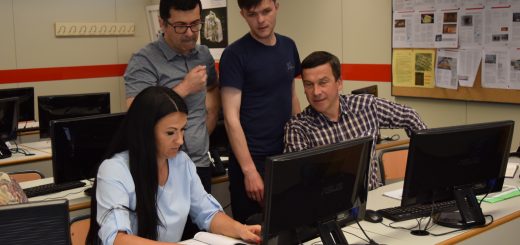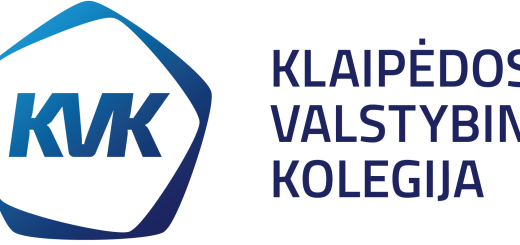Klaipėda State University of Applied Sciences seeks new heights in the field of GIS innovations and the use of unmanned aircraft
On the 14th of February, at Klaipėda State University of Applied Sciences, Faculty of Technologies, project’s GISEDU conference was held, during which the purchased equipment and its possibilities were presented. Project “Creation of Joint GI Education to Increase Job Opportunities in the region (GISEDU, Nr. LLI-206)”, funded by Interreg V-A Latvia – Lithuania Programme 2014-2020, has been particularly important for the academic community and enterprises in the region for the last two years. Also, the municipalities of Klaipėda, Tauragė, Šilalė, Kretinga, Neringa and Palanga were introduced to the project activities, which in the future will benefit from GIS innovations in planning and better management of their districts and cities.
The above-mentioned EU program finances and develops cooperation between the state borders, therefore Latvian University of Life Sciences and Technology (LLU) has been chosen as a partner. GISEDU project and its results were also presented to the representatives of the municipalities of Zemgale, Kurzeme and Latgale in Latvia. European Union has allocated 648 000 Euros for this project. For this amount, 2 GIS competence centers were established in Klaipėda and Jelgava. Also many up-to-date modern computer hardware (such as workstations-computers, multifunctional and wide-format and 3D printers) and some of the next generation software packages (Arcgis, Bentley Microstation, etc.) were purchased.
The students and managers of geodetic companies have been attracted by a huge unmanned aircraft that can scan and digitize large areas within minutes, and transfer data to computer storage to recreate 3D images of areas with incredible small details such as grass clogs or pavement blocks. The project funded purchases of laser scanners, which can scan the environment or a specific building at speeds of up to 20,000 to 40,000 points per second. This state-of-the-art equipment creates a ‘cloud of points’ that penetrates even through plant foliage and measures not only the area, but also the facades (walls, windows, doors, etc.) of the houses behind the trees, within a few centimeters of accuracy. For comparison, it is enough to say that Lithuanian geodesy companies are still working in a classical – manual way, where people with available measuring equipment can record only individual points of the object and spend much more working time.
GISEDU project also included teachers training. More than 50 teachers from the Klaipėda State University of Applied Sciences and Latvian partner had the opportunity to acquire competencies for working with intelligent systems innovations. 40 study subjects were renewed for new technological challenges. Expert, responsible for the technical part of the project, Indrius Kuklys, told about the experimental works carried out: 120 sculptures of Klaipėda Sculpture Park were scanned and digitized; the results can be seen on the website www.regia.lt. Practical work has also been carried out in the city of Šilalė, where D. Poškos Baubliai Museum and the park nearby were digitized. These tests indicate the infinite possibilities of the latest geodetic equipment and wide application not only in cartography, construction sector or other kind of business, but also in public life, promoting tourism and cultural objects.
The conference was attended not only by the teachers and students of Klaipėda State University of Applied Sciences but also by representatives of various companies and organizations. We also had invited guests to shared their experiences. Head of Geodesy and GIS Division of Klaipėda City Municipality specialist Marija Buivydienė, Palanga City Municipal Architecture and Territorial Planning GIS Analyst Mindaugas Valaitis and Klaipeda University Researchers – dr. Eduardas Spiriajevas and Viačeslav Jurkin delivered presentations on the various ways and innovations of modern mapping technologies.
The equipment, purchased with the funds of the project, is the most modern in Lithuania today and no other higher school has such an equipment. We are pleased that we can contribute to geodesy innovations, collaborate with various companies and create an attractive learning environment.
This publication has been produced with the financial assistance of the European Union. The contents of this publication are the sole responsibility of Klaipeda State University of Applied Sciences and can under no circumstances be regarded as reflecting the position of the European Union.




